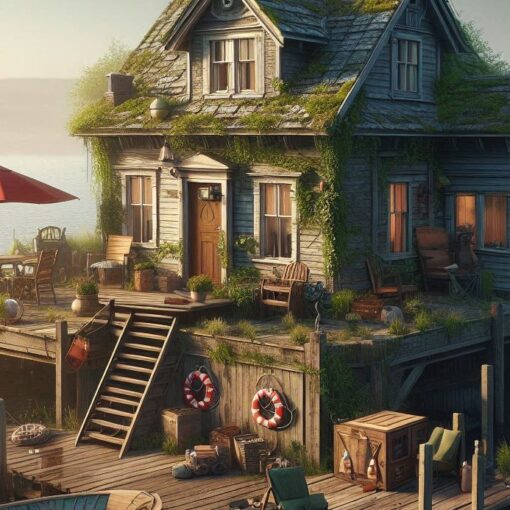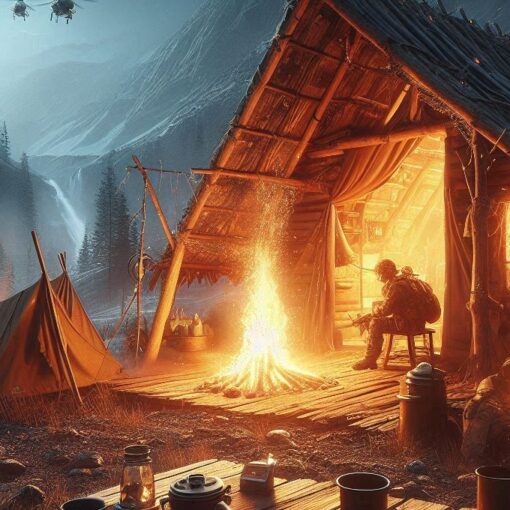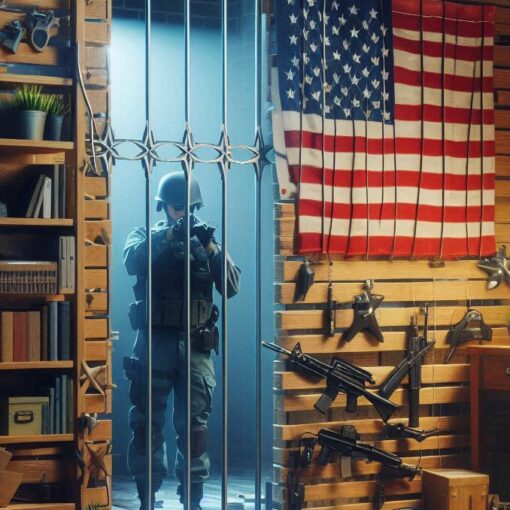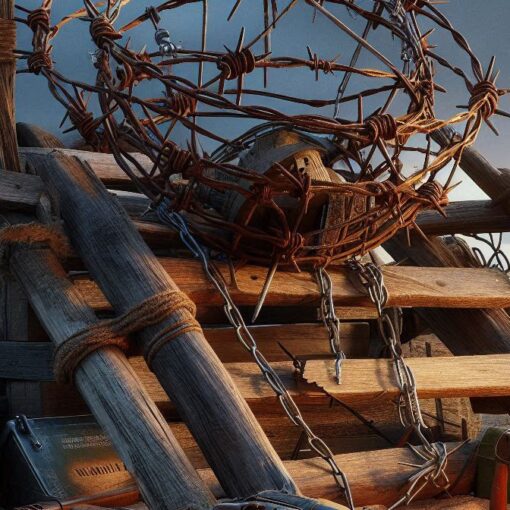Top Takeaways and Key Concepts
- Identify valuable trade items by knowing what others need and what you can offer.
- Build trust first through friendly communication and positive relationships with trading partners.
- Negotiate fairly and confidently by starting high and listening to the other person.
- Trade smart by knowing priorities and focusing on high-need resources in each situation.
- Prioritize safety during trades by trusting your instincts and avoiding risky exchanges.
Summary of This Article
This article explains how bartering can be a powerful survival skill when money is useless or resources are scarce. It highlights the importance of identifying useful trade items and understanding their value to others. Building trust and strong relationships makes trading safer and more effective, while fair negotiation keeps both sides satisfied. The article also stresses choosing trade items based on current needs, like food, maps, or tools, depending on the situation. Most importantly, it reminds readers to stay safe, trust their instincts, and walk away from risky deals. With practice, anyone can master bartering and use it to thrive in tough situations.
Short Video Version of this Article
When times are hard and resources are low, trade can save your life. It feels like a wonderful game of give and take. It’s quite vital to know how to trade things without placing yourself in danger, whether you’re camping or just dealing with regular concerns.
I recall the first time I went camping. At first, it was alarming that we ran out of firewood. We didn’t panic, though. We saw another gang close by and made a deal with them for some extra supplies they had. That was a great lesson! It was easier to do things when I could trust and negotiate with others.
Please Note: This post may contain affiliate links. If you click one of them, we may receive a commission at no extra cost to you. As an Amazon Associate, I earn from qualifying purchases.

So, how can you get better at this? First, think about what you have that other people might want. It could be an additional snack or perhaps a fun toy. Be nice and open when you talk to someone. A grin can do a lot!
But always remember to be safe. It’s alright to leave if something feels wrong or makes you uncomfortable. Believe in your gut!
You can also gain confidence by practicing these abilities. The more you trade and talk to others, the better you’ll get at it. And who knows? You might even meet some new people along the way!
Understanding the Basics of Barter
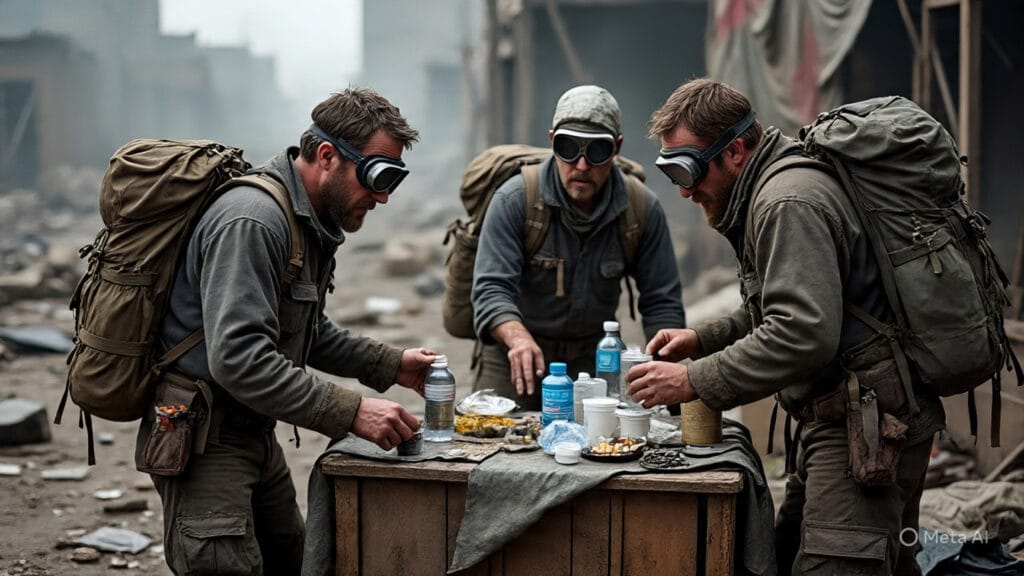
Bartering is just trading one thing for another without using money. Think about it: how many times have you traded snacks with buddies at lunch? That’s very much what bartering is in its most basic form! This habit can become even more important in survival scenarios when currency may not be worth much anymore.
If you know what you have that other people want, it’s like having a treasure map for dealing. It makes everything simpler! If you have a lot of dried fruit but need fishing gear, here is your time to negotiate a deal. There might be someone out there who genuinely wants those nice goodies.
I recall this one occasion when I was hiking. Another camper needed matches because his had gotten damp. I was lucky to have an extra pack! In the end, we traded my matches for some fish he had just caught. It was a terrific feeling! Isn’t it a win-win?
But here’s the thing: it’s very crucial to know how much things are worth. Someone else might not think that what looks dazzling and special to you is the same. So, before you make any deals, take a peek around and see what other people are offering.
If you were at a trade meet with friends, you’d want to know what everyone was bringing. You might also see someone with cool stickers or interesting activities that you want to play.
Everyone feels better about their trade when they take the time to compare. It also helps you and the other person trust each other. That way, both sides are delighted when the deal is done!
Building Trust and Relationships
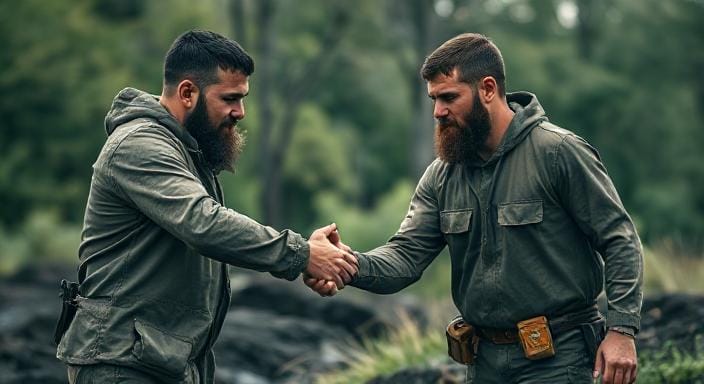
When it comes to trading, trust is crucial, especially when resources are scarce and you need to survive. You don’t want to give up anything precious only to find out later that the other person isn’t trustworthy or dependable! Building solid relationships ahead of time can make things move more smoothly later on.
I went camping with my pals last year in a secluded place. We made careful to meet the other campers who were close by. You know how it is—sitting around the campfire, sharing stories, and eating s’mores. Who doesn’t enjoy those gooey snacks?
Sharing those times made everything seem safe and welcoming. We were all relaxed and having fun, so it was easy to swap items. No one was scared or anxious about what someone else may do.
Being nice is also very helpful. People think you’re kind and trustworthy when you smile and talk to them. It’s like making a little bridge of friendship! People are much more likely to trade with someone they know than with a stranger who is hanging around their campsite.
If you were in school, wouldn’t you share your food with your best friend before anyone else? Same thought! It’s easier to trade when others feel at ease around you. So the next time you’re out there, keep in mind that being nice can make a big difference. You’ll meet wonderful trading partners in no time if you just be yourself!
Making Fair Deals
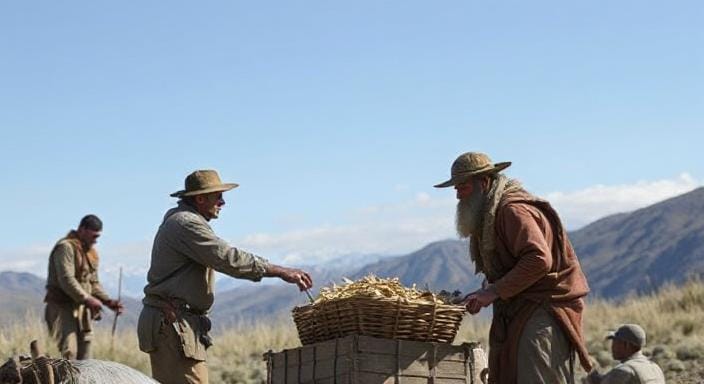
Now it’s time to have some fun with the deal! In a way, it’s like a game. You have to have faith in yourself and show the other person respect. Being fair is very important when you do business. No one wants to feel like they’ve been deceived or offended over something dumb, like burnt marshmallows.
It can be prudent to start high. If you have something cool to trade, like medical supplies or tools, ask for more than you really want at first. You actually want fishing gear, but you may also use water purification tablets. First, ask for that fishing gear! It provides you space to talk things over.
It’s also very crucial to listen. You should listen to what the other person is saying and watch their body language. People’s faces might sometimes tell a different tale than what they say. You can tell how serious they are about trade by how excited or unsure they look about your offer.
It’s all about being able to interpret the circumstance. Everyone is delighted when both sides are happy with the deal. And if this time doesn’t work out, you can always try again later! Just keep being friendly and smiling. That way, the next time could be even better!
Knowing Which Resources Are Important
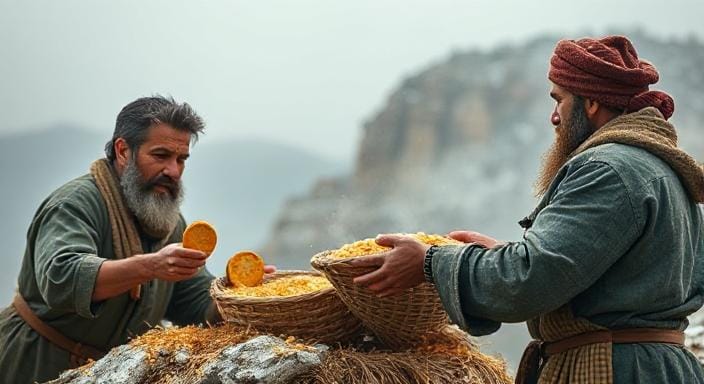
You need different tools for different jobs. It might be quite helpful to know what really matters. Picture yourself hiking in the woods. When you’re walking for hours and hungry, food becomes really vital. But if you become lost, maps and other tools for finding your way become much more helpful.
I remember the time we were touring the mountains. It was amazing to see all the different sorts of animals! But then, oh no, we lost track of where we were heading. We all forgot to bring maps. What a scary moment! It made me see how important it is to know where you’re going.
Before you go to a new place, think about what the people there might need. It’s also a good idea to see what works well for that time of year. You wouldn’t want to trade cold gear while it’s hot outside, would you?
Being ready can make a big difference. It makes adventures more fun instead of unpleasant. And who knows? Sharing what you have could even help you meet some amazing friends along the road! Be ready for anything and always keep your eyes open, for life is full of surprises!
How to Stay Safe While Trading
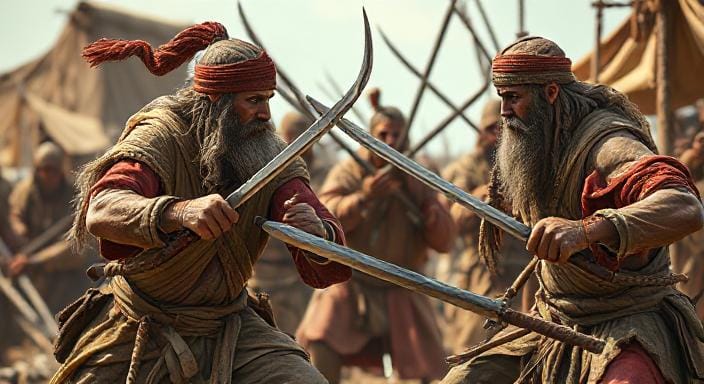
Bartering can be a lot of fun and a good way to get things done! But you should always think about your safety when making these arrangements. Be careful all the time, but especially with those you don’t know well. It’s not always evident why people desire what they want.
I remember camping by a river once. People came up to us and asked for food. They seemed a little aggressive about it, like they truly needed help but didn’t ask properly. It made me feel bad.
My gut feelings kicked in right away. I told my group to be careful and not get too involved. I learned from past experiences that conflicts can come up when people suddenly confront each other. People can act in strange ways when they’re upset or desperate.
It’s fantastic to help other people, but you should also put your own safety first. If something doesn’t feel right, believe that feeling! If you don’t feel comfortable, it’s okay to say no or leave. You can always help in other ways that don’t put you in danger.
When you know how to barter, you can stay safe. That way, you can have fun on your trips without worrying too much.
Conclusion: Mastering the Art of Barter
It truly does take practice to get good at bartering. It’s like learning how to ride a bike. You might wobble at first, but you’ll soon get the hang of it. These skills might aid you in ways you would not think.
It helps a lot to know the basic guidelines of good trading. It’s not only about what you own; it’s also about getting others to trust you. When people know they can trust you, trade is more enjoyable and easy for everyone.
Think about when you’re camping or just hanging out with buddies and realize you need something. It could be snacks or things you need for a project. Remembering these ideas can make a big difference.
You should always put safety first when you trade. That’s fantastic if someone seems polite and trustworthy. But if something doesn’t feel right, trust your intuition.
When you have these concepts in your head, you’ll feel more sure of yourself the next time you have to make a trade or deal. You’ll be ready for everything that comes your way! You will perform well no matter where your journey takes you, whether it’s on an outdoor excursion or just doing regular things.
Frequently Asked Questions
What is bartering and why is it useful in survival situations?
Bartering is trading goods or services without using money, and it becomes incredibly valuable when cash loses its value or supplies are limited. In survival situations, it allows people to get what they need by exchanging useful items like food, tools, or supplies.
How do I know what items are good for trading?
The best trade items are useful, portable, and in high demand. Things like food, matches, tools, water filters, medical supplies, and batteries are great barter items because people always need them. Knowing local needs also helps you choose valuable trade goods.
How can I build trust with trading partners?
Building trust starts with being friendly, honest, and respectful. Get to know people before trading by talking, sharing small items, or helping each other. Strong relationships lead to safer and smoother trades, especially during emergencies.
What are some tips for negotiating fair trades?
Start by asking slightly more than you expect, so you have room to negotiate. Be clear about what you want, listen carefully, and respect the other person’s needs. Aim for a fair deal where both people feel satisfied—good trades build long-term barter relationships.
What items are the most valuable to barter in emergencies?
The most valuable items change based on the situation. In cold weather, warm clothing and fire-starting tools are valuable; when someone is hungry, food becomes priceless. Other consistently valuable items include medicine, clean water, hygiene supplies, fuel, and tools.
How do I stay safe while bartering?
Always meet in safe, public places and avoid trading alone with strangers. Keep some of your supplies hidden in case a deal goes wrong. Most importantly, trust your instincts—if someone seems pushy, dishonest, or dangerous, walk away immediately.
How can I improve my bartering skills?
Practice! Start small by trading everyday items with neighbors or friends. Work on communication, negotiation, and learning the value of goods. The more you barter, the more confident and skilled you’ll become at making smart, safe trades.
Suggested External Resources:
Barter System Explained
https://www.investopedia.com/terms/b/barter.asp
How To Barter Effectively
https://www.thebalance.com/how-to-barter-4160823
Survival Skills: How To Barter
https://survivalskills.com/barter-skills/

Kevin Collier is a seasoned outdoor enthusiast and writer for Trekbug.com, specializing in outdoor adventures, survival strategies, and prepping insights. With a deep love for nature and a commitment to self-sufficiency, Kevin empowers readers to embrace the wilderness confidently. He shares valuable tips, practical techniques, and inspiring stories, helping both novice and experienced adventurers develop essential skills for surviving and thriving in the great outdoors.


